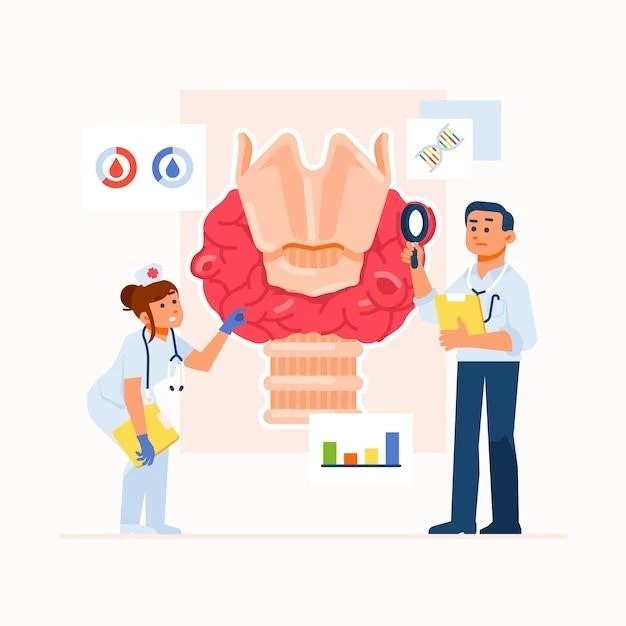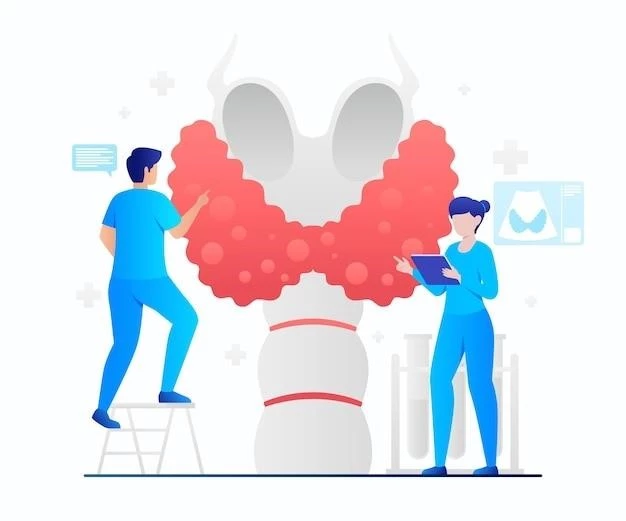Disease ⎼ Hypoadrenocorticism Hypoparathyroidism Moniliasis
An informative guide on the conditions of hypoadrenocorticism, hypoparathyroidism, and moniliasis. Understand the diseases, their impact, symptoms, diagnostics, chronic management strategies, health risks, and comprehensive treatment options. Stay informed to take control of your health.

Understanding the Conditions
Understanding hypoadrenocorticism, hypoparathyroidism, and moniliasis is crucial for managing your health. Hypoadrenocorticism, or adrenal insufficiency, is a hormonal deficiency affecting the adrenal glands. Hypoparathyroidism results in low calcium levels due to parathyroid gland issues. Moniliasis, also known as candidiasis, is a fungal infection caused by yeast overgrowth. These conditions can impact your endocrine, digestive, and immune systems, leading to a range of symptoms and health complications. Take a proactive approach by learning about the causes, symptoms, and treatment options for each condition. Consult with healthcare professionals to develop a personalized holistic plan for your well-being.
Endocrine Glands Involved
The endocrine glands play a vital role in the pathophysiology of hypoadrenocorticism, hypoparathyroidism, and moniliasis. The adrenal glands are affected in hypoadrenocorticism, leading to hormonal deficiencies and adrenal insufficiency. Hypoparathyroidism involves the parathyroid gland, responsible for regulating calcium levels in the body. Moniliasis impacts the endocrine system indirectly through its effects on the immune system, potentially leading to dysregulation in hormonal balance. Understanding how these glands function and interact can provide insights into the complexities of these conditions. Consult with healthcare providers for comprehensive diagnostics and personalized treatment plans tailored to address the specific involvement of the endocrine glands.
Impact on Digestive System and Immune System
The conditions of hypoadrenocorticism, hypoparathyroidism, and moniliasis can have significant impacts on both the digestive system and the immune system. Hormone deficiencies in hypoadrenocorticism affect metabolic processes and can lead to malabsorption issues within the digestive system. Hypoparathyroidism, resulting in hypocalcemia, can disrupt muscle function, including those involved in digestion. Moniliasis, a fungal infection, can compromise the immune system, affecting its ability to maintain gut health. These interconnections highlight the importance of addressing both digestive and immune system health in the management of these conditions. Incorporating holistic approaches that consider these impacts can help in developing effective treatment strategies tailored to individual needs.
Recognizing Symptoms
Recognizing the symptoms of hypoadrenocorticism, hypoparathyroidism, and moniliasis is crucial for early detection and management. Symptoms of adrenal insufficiency, such as fatigue, weight loss, and low blood pressure, may indicate hypoadrenocorticism. Signs of hypoparathyroidism include muscle spasms, numbness, and tingling due to low calcium levels. Moniliasis may present with oral thrush, vaginal yeast infections, or digestive issues. Being aware of these symptoms can prompt timely diagnostics and intervention. If you experience persistent or concerning symptoms, consult healthcare professionals for proper evaluation and guidance on treatment options specific to each condition.
Diagnostics and Therapy
Accurate diagnostics play a key role in identifying and differentiating hypoadrenocorticism, hypoparathyroidism, and moniliasis. Tests like blood cortisol levels, ACTH stimulation tests, and imaging studies help diagnose adrenal insufficiency. For hypoparathyroidism, blood calcium and parathyroid hormone levels are measured, alongside imaging for gland evaluation. Moniliasis may require swabs, blood tests, or cultures for fungal identification. Once diagnosed, therapy focuses on addressing the underlying causes. Hormone replacement therapy is essential for adrenal insufficiency. Calcium and vitamin D supplements are prescribed for hypoparathyroidism, while antifungal medications manage moniliasis. Collaborate with healthcare providers to develop a comprehensive treatment plan tailored to your specific needs.
Chronic Condition Management Strategies
Managing chronic conditions like hypoadrenocorticism, hypoparathyroidism, and moniliasis requires a comprehensive approach. Regular monitoring of hormone levels, calcium levels, and immune function is essential. Adhering to prescribed medications, including hormone replacements and supplements, is crucial for stabilizing these conditions. Adopting a healthy lifestyle with balanced nutrition, regular exercise, and stress management techniques can support overall well-being. Holistic approaches such as acupuncture, yoga, or herbal remedies may complement traditional treatments. Stay informed about advances in chronic condition management, and actively engage with healthcare professionals to optimize your care plan. Remember, consistency and diligence are key in managing chronic health challenges effectively.
Health Complications and Risks
Untreated or poorly managed hypoadrenocorticism, hypoparathyroidism, and moniliasis can lead to various health complications. Adrenal insufficiency may result in adrenal crisis, a life-threatening condition that requires immediate medical attention. Hypoparathyroidism complications include seizures, heart rhythm abnormalities, and cognitive impairments due to low calcium levels. Moniliasis can spread to other parts of the body, causing systemic infections. Long-term risks include bone disorders, kidney problems, and compromised immune function. It is crucial to address these conditions promptly to reduce the risks of severe complications. Regular follow-ups with healthcare providers and adherence to treatment plans are essential for minimizing health risks associated with these chronic conditions.
Comprehensive Treatment and Care
Comprehensive treatment for hypoadrenocorticism, hypoparathyroidism, and moniliasis involves a multidisciplinary approach tailored to each condition. Hormone replacement therapy is central in managing adrenal insufficiency, while calcium and vitamin D supplementation are key for hypoparathyroidism. Antifungal medications and probiotics address moniliasis. Integrating lifestyle modifications such as a balanced diet, regular exercise, and stress management techniques forms a crucial part of care. Regular follow-ups, monitoring of symptoms, and diagnostic tests help track progress and adjust treatment plans accordingly. Collaborate closely with a healthcare team to ensure coordinated care and optimize treatment outcomes. Empower yourself by staying informed about your conditions and actively participating in your treatment and care journey.
Conclusion
In conclusion, understanding and effectively managing hypoadrenocorticism, hypoparathyroidism, and moniliasis are crucial for maintaining optimal health. Recognizing the symptoms, seeking timely diagnostics, and initiating appropriate therapy are key steps in addressing these conditions. By adopting a holistic approach that encompasses lifestyle modifications, adherence to prescribed medications, and regular follow-ups with healthcare providers, individuals can enhance their quality of life and minimize health risks associated with these chronic conditions. Remember, proactive self-care and active engagement with healthcare professionals are essential in navigating the complexities of these diseases. Stay informed, stay vigilant, and prioritize your well-being for a healthier future.
